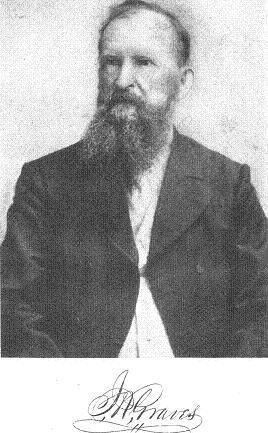Dr. Graves in his peculiarities represents a section of the Baptist denomination, a conscientious and devoted portion of our great apostolic community, but in his earnest and generous zeal for our heaven-inspired principles he represents all thorough Baptists tbroughout the ages and the nations. In his literary efforts he has rendered immense service to the Baptist churches of America. The republication of Robinson's "History of Baptism" and Wall's "History of Infant Baptism," with his able introductions, and the other historical works which have been issued through his instrumentality, have exerted a vast influence in favor of the oldest denomination in Christendom. The fearless boldness of Dr. Graves in advocating the practices of Christ and his Apostles, his manly denunciations of that ungodly charity that would tread under foot a divine ordinance to please untaught professing Christians of Pedobaptist denominations, have aided mightily in suppressing lukewarmness, and in fostering zeal for the truth among us. The Alabama Baptist, Dr. E. T. Winkler editor, truly says, "Extreme as the yiews of Dr. Graves have by many been regarded as being, there is no question that they have powerfully contributed to the correction of a false liberalism that was current in many quarters thirty years ago." Dr. S. H. Ford, in his Christian Repository, gives his approval to this statement, saying, "We fully indorse this just commendation of the efforts of Dr. Graves. We differ with him in some things, but we honor his heroic life-work in meeting and exposing error wherever uttered."
==========
[From William Cathcart, editor, The Baptist Encyclopedia, 1881; rpt. 1988, pp. 466-468. Scanned and formatted by Jim Duvall.]
Baptist Biographies
Baptist History Homepage
